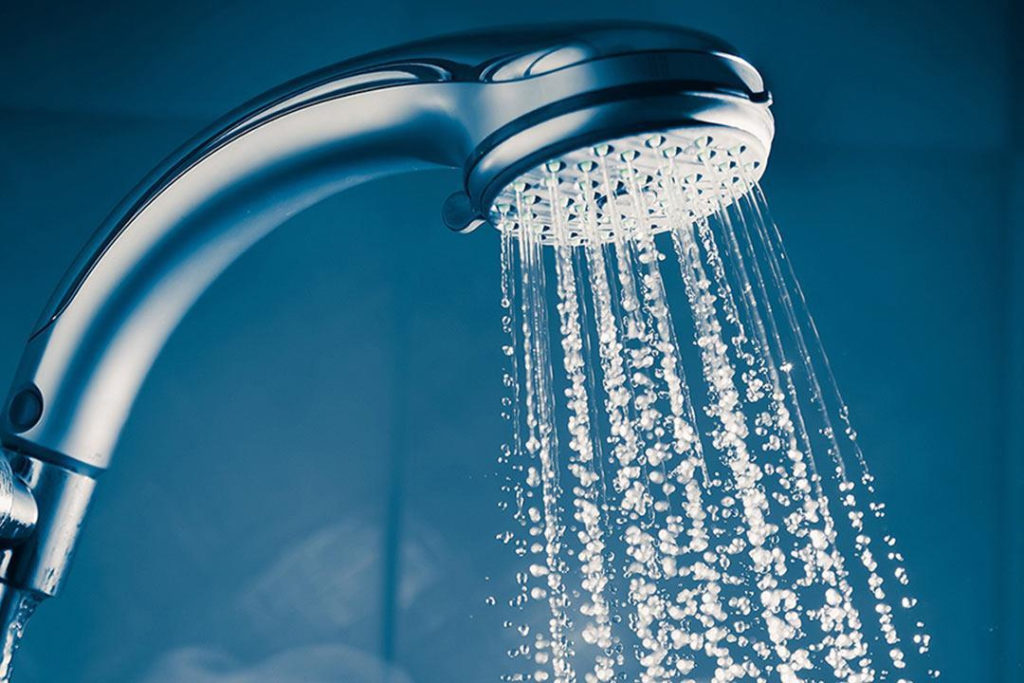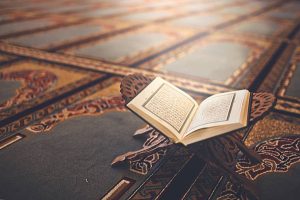
1. Commence the ghusl by washing both hands up to the wrists thrice.[1]
عن عائشة زوج النبي صلى الله عليه وسلم أن النبي صلى الله عليه وسلم كان إذا اغتسل من الجنابة بدأ فغسل يديه (صحيح البخاري، الرقم: ٢٤٨)
Hazrat Aaishah (radhiyallahu ‘anha), the respected wife of Hazrat Rasulullah (sallallahu ‘alaihi wasallam), reports that when Hazrat Rasulullah (sallallahu ‘alaihi wasallam) would perform fardh ghusl, he would commence by washing his mubaarak hands.”
2. Wash the private parts with the left hand. The hands and private parts should be washed irrespective of whether there is any impurity on them or not.[2]
عن ابن عباس قال قالت ميمونة وضعت للنبي صلى الله عليه وسلم ماء للغسل فغسل يديه مرتين أو ثلاثا ثم أفرغ على شماله فغسل مذاكيره (صحيح البخاري، الرقم: ٢٥٧)
Hazrat Ibnu Abbaas (radhiyallahu ‘anhuma) reports that Hazrat Maimoonah (radhiyallahu ‘anha) said, “I placed water for Hazrat Rasulullah (sallallahu ‘alaihi wasallam) to perform ghusl. Hazrat Rasulullah (sallallahu ‘alaihi wasallam) washed his mubaarak hands twice or thrice, and thereafter poured water onto his left hand and (using his left hand,) washed his private area.”
3. Wash any impurity found on the rest of the body.[1]
4. Perform the complete wudhu. If you are bathing in a place where the water collects on the ground and there is no water outlet, then postpone the washing of your feet to the end of the ghusl. After completing the other acts of the ghusl, you should move to another place and wash your feet.[3]
عن عائشة قالت كان رسول الله صلى الله عليه وسلم إذا أراد أن يغتسل من الجنابة بدأ فغسل يديه قبل أن يدخلهما الإناء ثم غسل فرجه ويتوضأ وضوءه للصلاة (سنن الترمذي، الرقم: ١٠٤)[4]
Hazrat Aaishah (radhiyallahu ‘anhu) reports that when Hazrat Rasulullah (sallallahu ‘alaihi wasallam) would intend to perform fardh ghusl, he would commence by washing his mubaarak hands before submerging them in the utensil of water. Then, he would wash his private parts and perform wudhu, just as he would perform wudhu for salaah.”
عن ابن عباس قال قالت ميمونة وضعت لرسول الله صلى الله عليه وسلم ماء يغتسل به … ثم تنحى من مقامه فغسل قدميه (صحيح البخاري، الرقم: ٢٦٥)
Hazrat Ibnu Abbaas (radhiyallahu ‘anhuma) reports that Hazrat Maimoonah (radhiyallahu ‘anha) said, “I placed water for Hazrat Rasulullah (sallallahu ‘alaihi wasallam) to perform ghusl … (After completing the ghusl,) Hazrat Rasulullah (sallallahu ‘alaihi wasallam) moved away from the place where he had performed ghusl and then washed his mubaarak feet.”
5. Pour water on the head thrice.[5]
عن عائشة قالت كان رسول الله صلى الله عليه وسلم إذا أراد أن يغتسل من الجنابة بدأ فغسل يديه قبل أن يدخلهما الإناء ثم غسل فرجه ويتوضأ وضوءه للصلاة ثم يشرب شعره الماء ثم يحثي على رأسه ثلاث حثيات (سنن الترمذي، الرقم: ١٠٤)[6]
Hazrat Aaishah (radhiyallahu ‘anha) reports that when Hazrat Rasulullah (sallallahu ‘alaihi wasallam) would intend to perform fardh ghusl, he would commence by washing his mubaarak hands before submerging them in the utensil of water. Then, he would wash his private parts and perform wudhu, just as he would perform wudhu for salaah. Thereafter, he would wet his hair, after which he would pour three handfuls of water over his mubaarak head.”
[1] (الفصل الثاني في سنن الغسل) وهي أن يغسل يديه إلى الرسغ ثلاثا ثم فرجه ويزيل النجاسة إن كانت على بدنه ثم يتوضأ وضوءه للصلاة إلا رجليه هكذا في الملتقط (الفتاوى الهندية ١/١٤)
[2] (و) كذا (غسل فرجه) وإن لم يكن به نجاسة كما فعله النبي صلى الله عليه وسلم ليطمئن بوصول الماء إلى الجزء الذي ينضم من فرجه حال القيام وينفرج حال الجلوس (حاشية الطحطاوي على مراقي الفلاح صـ ١٠٤)
[3] (ثم يتوضأ كوضوئه للصلاة فيثلث الغسل ويمسح الرأس) في ظاهر الرواية وقيل لا يمسحها لأنه يصب عليها الماء والأول أصح لأنه صلى الله عليه وسلم توضأ قبل الاغتسال وضوءه للصلاة وهو اسم للغسل والمسح (ولكنه يؤخر غسل الرجلين إن كان يقف) حال الاغتسال (في محل يجتمع فيه الماء) لاحتياجه لغسلهما ثانيا من الغسالة (حاشية الطحطاوي على مراقي الفلاح صـ ١٠٥)
[4] قال أبو عيسى: هذا حديث حسن صحيح
[5] (بادئا بمنكبه الأيمن ثم الأيسر ثم رأسه) على (بقية بدنه مع دلكه) ندبا وقيل يثني بالرأس وقيل يبدأ بالرأس وهو الأصح وظاهر الرواية والأحاديث قال في البحر وبه يضعف تصحيح الدرر
قال العلامة ابن عابدين رحمه الله: (قوله وظاهر الرواية) كذا عبر في النهر والذي في البحر وغيره التعبير بظاهر الهداية (قوله والأحاديث) قال الشيخ إسماعيل وفي شرح البرجندي وهو الموافق لعدة أحاديث أوردها البخاري في صحيحه اهـ فافهم (قوله تصحيح الدرر) هو ما مشى عليه المصنف في متنه هنا (رد المحتار ١/١٥٩)
[6] قال أبو عيسى: هذا حديث حسن صحيح
 Ihyaaud Deen An Effort to Revive Deen in Totality
Ihyaaud Deen An Effort to Revive Deen in Totality



